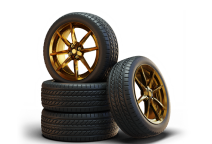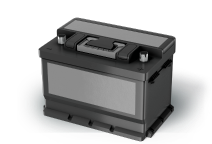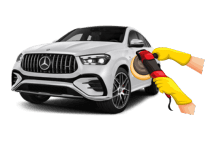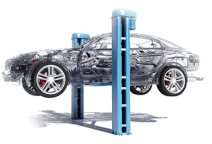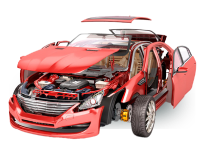Have you ever been driving your car, only to notice an unusual and unsettling vibration? Car vibrations can range from mild annoyance to a sign of a potentially serious problem. In this blog, we'll explore some common causes of car vibrations and offer insights into how to address them.
- Unbalanced or Worn Tires
Tire issues are a common culprit when it comes to car vibrations. Over time, tires can become unbalanced or wear unevenly, causing vibrations at various speeds. To remedy this, consider rotating your tires regularly and having them balanced and aligned. If the tires are worn beyond repair, it's time for replacement.
- Wheel Alignment Problems
Misaligned wheels can lead to uneven tire wear and vibrations. If your car consistently pulls to one side or you notice the steering wheel is off-center when driving straight, it's a good indication that your wheels need alignment. Proper alignment ensures even tire contact with the road, reducing vibrations.
- Brake Issues
Worn brake components, such as brake rotors or brake pads, can lead to vibrations when you apply the brakes. Vibrations during braking often indicate uneven rotor wear. Address this issue promptly, as neglecting it can lead to further brake problems and reduced braking efficiency.
- Suspension Problems
A damaged or worn suspension system can also be a source of car vibrations. Worn-out shocks, struts, or bushings can make your car feel bouncy and unstable. Regular suspension maintenance and replacement of worn components can restore a smooth ride.
- Driveshaft Problems
Driveshaft issues can result in vibrations, especially during acceleration. Damaged or worn universal joints or an imbalanced driveshaft can be the cause. If you experience vibrations only during acceleration, it's important to have your driveshaft checked by a professional.
- Engine Issues
Engine problems can sometimes cause vibrations. Misfires in the engine, caused by issues like faulty spark plugs or a malfunctioning fuel injector, can lead to a rough-running engine that vibrates. Regular engine maintenance, such as tune-ups, can help prevent these issues.
- Exhaust System Concerns
A damaged or loose exhaust system, including the muffler, catalytic converter, or exhaust pipes, can result in vibrations. These vibrations are often more noticeable when the car is idling. Timely repairs and maintenance can prevent exhaust system-related vibrations.
- Tire Belt Separation
If you feel a rhythmic or constant vibration while driving, it may be due to a tire belt separation. This occurs when the internal structure of a tire breaks down. Inspect your tires for any bulges, unusual wear, or damage, and replace any affected tires immediately.
- Wheel Bearing Problems
Worn or damaged wheel bearings can lead to vibrations, particularly when you're driving at higher speeds. You may also hear a growling or humming noise. Prompt replacement of the faulty wheel bearings is essential for your safety and the health of your vehicle.
Conclusion
Car vibrations can be a sign of various underlying issues, some of which can be easily addressed with regular maintenance and inspections. However, it's crucial not to ignore vibrations, as they may be an early warning of more severe problems that could lead to expensive repairs if left unattended. If you experience persistent car vibrations, consider consulting a professional mechanic who can diagnose the issue and provide the necessary repairs, ensuring that you can once again enjoy a smooth and vibration-free driving experience. zDegree offers comprehensive vehicle checkups, even if you only change your car tyres at our stores. Our dedicated team will ensure that your car runs smoothly and will advise you if any of the critical compartments of your car needs immediate attention.

















